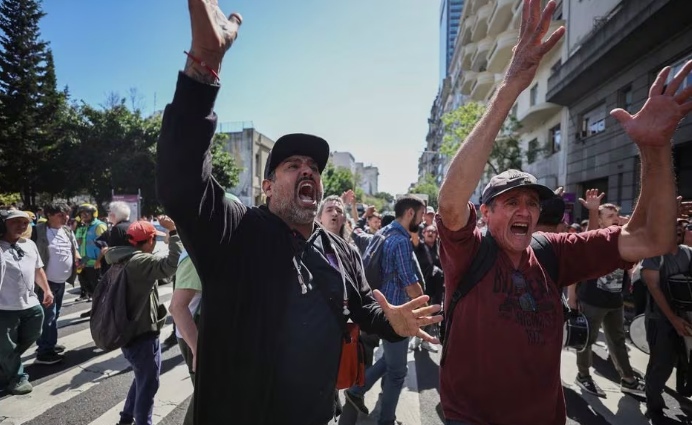Thousands of protesters flooded the streets of Buenos Aires on Wednesday to express their displeasure with the government’s economic shock measures.
The mass protest was the first real test for Argentina’s new libertarian president, Javier Milei, who took office earlier this month.
Milei has promised to cut government spending. The other day he announced sweeping plans to reform the economy and quell protests, creating a potential clash with social groups that have vowed to oppose his “shock therapy.”
Last week, Milei announced a 54 per cent devaluation of the peso currency, cutting subsidies and closing some government ministries He said the measures were necessary to tackle Argentina’s acute economic crisis.
Amid a heavy police presence, protesters led by groups representing the unemployed marched to the main Plaza de Mayo square, a historic meeting place in front of the presidential palace, to demand more financial support for the poor. Authorities directed protesters away from roads and onto pavements to allow traffic to pass. Eduardo Belliboni, who leads leftist protest group Polo Obrero, which first called the demonstration, told local radio:
“It is a peaceful mobilisation. We do not want any type of confrontation. We do not want any type of clash.”
Wednesday’s planned protest came after newly appointed Security Minister Milei last week unveiled a public order “protocol” that allows federal forces to block demonstrators from holding disruptive protests with road closures. The powers of the protocol go too far and jeopardise the right to protest, some civil society organisations said.
At Buenos Aires railway stations early Wednesday morning, an official announcement was broadcast to passengers that read:
“He who cuts, does not get paid.”
The government also said Monday that people who protest and block streets could lose the right to receive state benefits.
